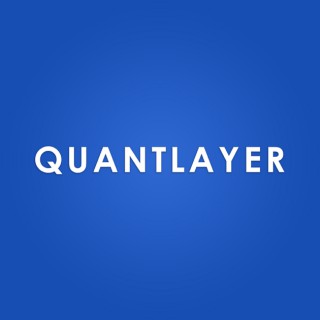Podcasts about practical byzantine fault tolerance
- 5PODCASTS
- 6EPISODES
- 56mAVG DURATION
- ?INFREQUENT EPISODES
- Mar 15, 2023LATEST
POPULARITY
Best podcasts about practical byzantine fault tolerance
Latest podcast episodes about practical byzantine fault tolerance
Episode 268: A Rollup-Centric Future & Sovereign Chains with Mustafa Al-Bassam
In this week's episode Anna Rose (https://twitter.com/annarrose) interviews Mustafa Al-Bassam (https://twitter.com/musalbas), co-founder of Celestia (https://celestia.org/). They cover where Celestia as an idea emerged from, how its rollup-centric data availability (DA) network works and what can be expected from their upcoming launch. They also chat about how Celestia aims to empower Sovereign chains - independent rollup chains that use Celestia as the DA and consensus layer - and how this Sovereign chain model compares with the Ethereum rollup architecture. Here are some additional links for this episode: Episode 208: Digging into Data Availability with Ismail Khoffi from Celestia (https://zeroknowledge.fm/208-2/) A rollup-centric ethereum roadmap (https://ethereum-magicians.org/t/a-rollup-centric-ethereum-roadmap/4698) Introducing Rollkit: a modular rollup framework (https://blog.celestia.org/introducing-rollkit-a-modular-rollup-framework/) My first impressions of web3 (https://moxie.org/2022/01/07/web3-first-impressions.html) Practical Byzantine Fault Tolerance (https://pmg.csail.mit.edu/papers/osdi99.pdf) Check out the ZK Jobs Board here: ZK Jobs (https://jobsboard.zeroknowledge.fm/). Aleo (https://www.aleo.org/) is a new Layer-1 blockchain that achieves the programmability of Ethereum, the privacy of Zcash, and the scalability of a rollup. Interested in building private applications? Check out Aleo's programming language called Leo by visiting http://developer.aleo.org (https://developer.aleo.org/getting_started/). You can also participate in Aleo's incentivized testnet3 by downloading and running a snarkOS node. No sign-up is necessary to participate. For questions, join their Discord at aleo.org/discord (https://discord.com/invite/aleohq). If you like what we do: * Find all our links here! @ZeroKnowledge | Linktree (https://linktr.ee/zeroknowledge) * Subscribe to our podcast newsletter (https://zeroknowledge.substack.com) * Follow us on Twitter @zeroknowledgefm (https://twitter.com/zeroknowledgefm) * Join us on Telegram (https://zeroknowledge.fm/telegram) * Catch us on YouTube (https://zeroknowledge.fm/)
本期我们有幸请到了 HotStuff 作者,美国康奈尔大学在读博士生尹茂帆(Ted Yin),一起聊聊他的学术之路。 摘要 高中打信息学竞赛,并不是他人眼中的一帆风顺,中间有许多不为人知的内心时刻。 大学暑假去康奈尔, 通过和 Gün 教授一起工作,慢慢探索出未来发展道路。 早在 2016 年因 DAO Hack 事件在国内闻名之前,Gün 教授因 Selfish Mining 在国际 Crypto Space 已经很有名了。 大学学的东西远远不够,读 PhD 是一个很好积累的过程。 Gün 教授是个喜欢说大实话的 Hacker,在学术界并不是很招人喜欢。 大扫除在文件堆里找到了 NSA(美国国家安全局)对 Gün 教授及其学生的感谢信。 读一个 PhD,迟早你要在专注的那个领域做到比你老板还厉害,不然的话,你读它干嘛。 PhD 三成时间是在学怎么和人交流,三成时间做科研 ,三成时间学做项目,或者说学习组织去做好一件系统的事情。 好的表达和交流会帮助你解决问题以及获得更多资源,你也需要去经营资源 。 学术界并没有达成统一共识,区块链是不是研究方向。 大众能去了解共识非常神奇,因为这是一个非常 Low Level 的事情,这也反应了整个行业目前还很不成熟。 BFT 是从历史尘埃中找出来的东西。 共识算法中新的算法并没有很多,魔改的很多。 ShowNotes ACM ICPC (https://zh.wikipedia.org/wiki/%E5%9B%BD%E9%99%85%E5%A4%A7%E5%AD%A6%E7%94%9F%E7%A8%8B%E5%BA%8F%E8%AE%BE%E8%AE%A1%E7%AB%9E%E8%B5%9B) John E. Hopcroft (https://www.cs.cornell.edu/jeh/) Robert Tarjan (https://en.wikipedia.org/wiki/Robert_Tarjan) Elaine Shi (https://www.engineering.cornell.edu/faculty-directory/elaine-shi) Ari Juels (https://www.engineering.cornell.edu/faculty-directory/ari-juels) Emin Gün Sirer (http://www.cs.cornell.edu/people/egs/) Gün’s Twitter about DAO Hack (https://twitter.com/el33th4xor/status/1008417777663774720) Ittay Eyal (https://webee.technion.ac.il/people/ittay/) Robbert van Renesse (https://www.cs.cornell.edu/home/rvr/) Paper about selfish mining (https://www.cs.cornell.edu/~ie53/publications/btcProcFC.pdf) SPIN operating system (https://en.wikipedia.org/wiki/SPIN_(operating_system)) Chain Replication for Supporting High Throughput and Availability By Robbert van Renesse (https://www.cs.cornell.edu/fbs/publications/ChainReplicOSDI.pdf) Bosco: One-Step Byzantine Asy (https://research.cs.cornell.edu/projects/Quicksilver/public_pdfs/52180438.pdf) Practical Byzantine Fault Tolerance (http://pmg.csail.mit.edu/papers/osdi99.pdf) Paxos (computer science) (https://en.wikipedia.org/wiki/Paxos_(computer_science)) Lorenzo Alvisi (https://www.engineering.cornell.edu/faculty-directory/lorenzo-alvisi) Dahlia Malkhi (https://en.wikipedia.org/wiki/Dahlia_Malkhi) DLS consensus algorithms (http://groups.csail.mit.edu/tds/papers/Lynch/jacm88.pdf?spm=a2c65.11461447.0.0.4c15478eYwX53X&file=jacm88.pdf) Zyzzyva: Speculative Byzantine Fault Tolerance (http://www.cs.cornell.edu/lorenzo/papers/Kotla08Zyzzyva.pdf) Another Advantage of Free Choice: Completely Asynchronous Agreement Protocols (https://allquantor.at/blockchainbib/pdf/ben1983another.pdf) Tendermint: Byzantine Fault Tolerance in the Age of Blockchains (https://allquantor.at/blockchainbib/pdf/buchman2016tendermint.pdf) HotStuff: BFT Consensus in the Lens of Blockchain (https://arxiv.org/abs/1803.05069) The Honey Badger of BFT Protocols (https://eprint.iacr.org/2016/199.pdf) Algorand: Scaling Byzantine Agreements for Cryptocurrencies (https://algorandcom.cdn.prismic.io/algorandcom%2Fa26acb80-b80c-46ff-a1ab-a8121f74f3a3_p51-gilad.pdf) Snow White: Robustly Reconfigurable Consensus and Applications to Provably Secure Proof of Stake (https://eprint.iacr.org/2016/919.pdf) Ouroboros-BFT: A Simple Byzantine Fault Tolerant Consensus Protocol (https://eprint.iacr.org/2018/1049.pdf) Special Guests: Ted Yin and 万涔涔.
Zilliqa With Edison Lim: Formal Verification of Smart Contracts, Byzantine Fault Tolerance, and Smart Contract Composition.
We spoke with Edison Lim, Application Lead at Zilliqa about their protocol. We consider Zilliqa’s approach to scaling and energy usage. We discuss their proof of work consensus model for miner verification, and their approach to sharded consensus groups. We take a technical look at their smart contract language Scilla and its roots in OCaml, and why formal verification is important. Topics: What Zilliqa is On smart contract language Different consensus mechanism What problems are they solving Practical Byzantine Fault Tolerance What their consensus model is Types of business or markets that benefit from their solution Links: Zilliqa - https://zilliqa.com/ For Developers - Zilliqa - https://zilliqa.com/for-developers.html Scilla Overview Paper - https://ilyasergey.net/papers/scilla-overview.pdf What is Practical Byzantine Fault Tolerance? - https://blockonomi.com/practical-byzantine-fault-tolerance/ Ecosystem Partners - Zilliqa - https://zilliqa.com/ecosystem-partners.html
Thriller Convo - S2EP 06: James Orbison | Cypherium
Car sits down and talks with James Orbison, Director of Strategic Development for Cypherium. Cypherium is a highly scalable and robust smart contract platform. Hybrid design features a joint Proof-of-Work (PoW) and Practical Byzantine Fault Tolerance (PBFT) consensus mechanism that can achieve thousands of transactions per second without sacrificing decentralization. Cypherium also implements a Turing-complete virtual machine for smart contracts that runs on Java, the most widely-utilized and reliable programming language in the world. Cypherium: https://cypherium.io
Zilliqa is a Practical Byzantine Fault Tolerance based, public, programmable blockchain platform that uses Proof of Work as a syble resistance mechanism. Combining PBFT and PoW is a brilliant trick to bring the state finality required for scaling through network and state sharding. Amrit Kumar, Head of Research, and Xinshu Dong, CEO, offer an overview of the project. At the same time, we learn from two of Singapore's innovation magnates of innovation about the advantage provided by both the government and educational institutions of the region. [Especially noteworthy after the success of Project Ubin] Epicenter episode: https://epicenter.tv/episode/209/ @the3rdweb the3rdweb.net contact@the3rdweb.net
The Ether Review #42 - Dominic Williams, Dfinity and Infinite Scaling
Dominic Williams is a cryptographic researcher focussed on scaling and the representation of real world assets in digital form. Dfinity, Dominic’s infinitely scalable virtual machine, is simple, and extremely powerful. This is the third time I’ve interviewed Dominic. The first was for the final episode of Beyond Bitcoin. Dominic enters at the 1hr 32min mark to explain Practical Byzantine Fault Tolerance. The second was in February 2016 on The Ether Review to discuss his work on synthetic digital assets. Today, we hear about the aforementioned Dfinity. http://dfinity.network/ https://soundcloud.com/arthurfalls/beyond-bitcoin-27th-and-final-an-architecture-for-the-internet-of-money https://www.etherreview.info/2016/02/16/ether-review-16-dominic-williams-synthetic-assets/ https://twitter.com/dominic_w https://twitter.com/arthurfalls Content: Dominic Williams, Arthur Falls Subscribe on iTunes: https://exit.sc/?url=https%3A%2F%2Fitunes.apple.com%2Fus%2Fpodcast%2Fthe-ether-review%2Fid899090462%3Fmt%3D2








